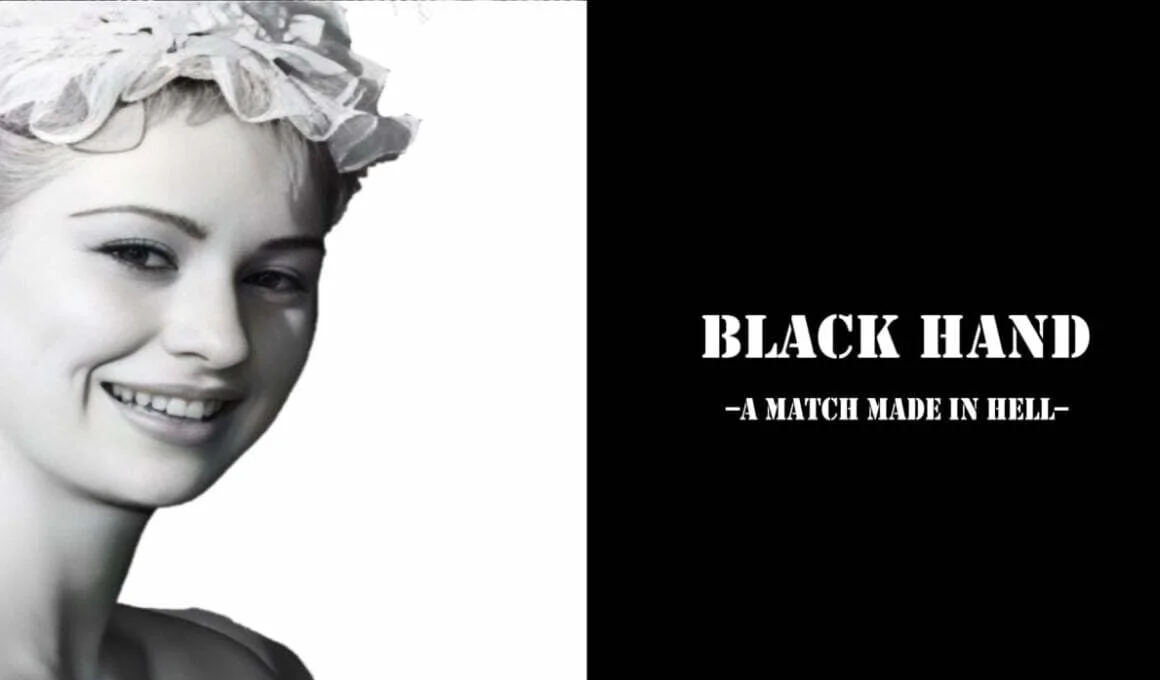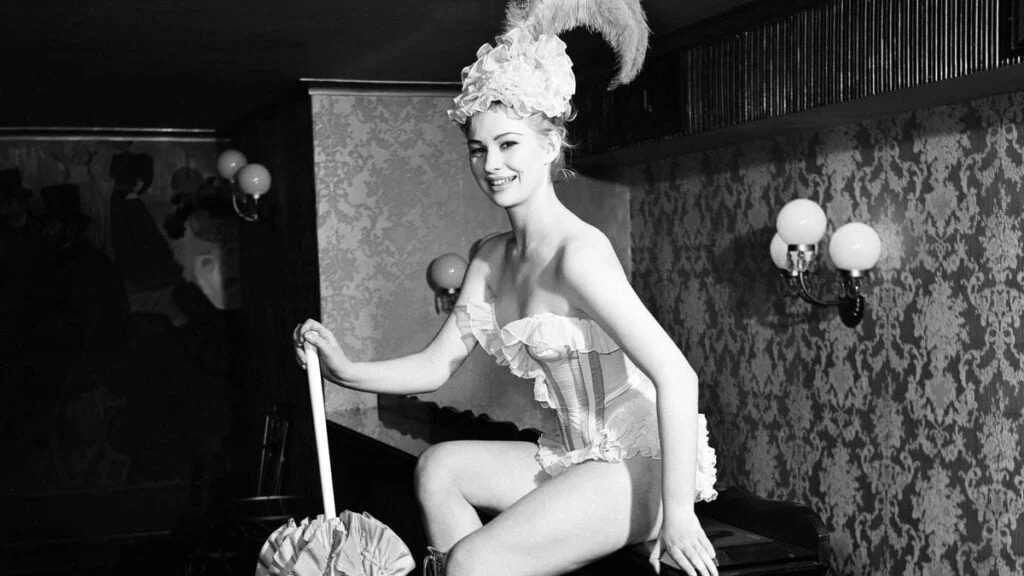by Johnny Vedmore, Unlimited Hangout:

How the satanic-themed sex parties of Horace Dibben helped collapse the British government.
At the height of the Cold War, in a country experiencing the final throes of a post-war economic boom, one strange man went on to play a central role in a scandal that brought down the British government. In a master class of how to get away with grand espionage, Hod Dibben coasted through danger seemingly without any fear. The night clubs of London, which have been the focus of our attention so far, are all under new ownership after a series of tragic deaths of their previous owners and hostesses. As always, with anything Horace Dibben did during this period, elite sex parties and sadomasochistic orgies were a key part of what would eventually develop into the Profumo Affair.
TRUTH LIVES on at https://sgtreport.tv/
Constance Capes and the Mysterious Mr. Atherley
Stella Marie Capes was born on 9 May 1941 in Sheffield, Yorkshire, to an unmarried mother, Constance Capes. Although she was born Stella Marie Capes, the name she chose to use most often before she met Hod Dibben was Mariella Capes. To understand why “Mariella” Capes went by so many different names—including Mariella Novotny and Henrietta Chapman— it is worth revisiting a little-known anecdote concerning her mother, Constance Capes.
Mariella’s mother was born in Grimsby in 1903 and was involved in a very curious and well-documented case in 1927 concerning a man who had also used multiple identities. Constance was twenty-four-years-old when she went to work as a secretary for a fascinating fraudster named Mr. Reginald Winterburn Atherley. She was described in a Daily Mirror article dated 5 October 1927 as a “pretty North-country typist” with the article describing how she had “several strange experiences while she was acting as Mr. Atherley’s secretary at the Four Winds caravan in Thirsk.” Constance Capes described in her own words what occurred when she arrived in Thirsk after corresponding with Mr. Atherley:
“The salary he proposed was small, but he said he would give me shares in his business. I knew that Four Winds was a caravan, but I did not know it was his permanent head-quarters. After I had worked four days with Mr. Atherley at the Four Winds I felt compelled to leave.
In the first place, it seemed a little too much to expect a typist to work by day, and sometimes by night, in a caravan situated in a field far from town. When I had been at Four Winds two days a curious incident occurred which made me doubtful. It was on Sunday, September 18 when Mr. Atherley came to my lodgings and told me that he had seriously injured a man with his car. He urged me to return to the caravan, which I did. At the Four Winds he got me to type a letter to a woman in Southport stating that Mr. Winterburn was dying, and if she wished to send him a message it would be delivered to him on regaining consciousness.
I then received the amazing request to sign the letter as Mr. Winterburn’s private secretary. (I must explain that Mr. Atherley sometimes called himself Mr. Winterburn. On the Tuesday he astonished me by asking me to sign most of his letters for him. I told him that I could not put my name to some of his correspondence, and remarked that I thought I had better leave. In consequence of this I left his service the same day. Of course, I received no salary, but I was really glad to be away from Four Winds. Although I was in need of a job, I think I acted for the best in leaving, and I am sure every typist would have done the same.”
Constance Capes had had her first run-in with a conman at the Four Winds caravan and it garnered her a lot of attention. The curious case of Mr Winterburn Atherley and the Four Winds caravan received a lot of coverage in the Daily Mirror, so much so that Atherley complained to the newspaper via his solicitors that the reports about him were both libellous and defamatory. But it was not only a lone typist, Constance Capes, who was standing up for the truth, as there had been a number of fraudulent incidents involving the illusive Mr. Atherley, including with Captain Denis Ewart Bernard Kingston Shipwright, a former-MP who took it upon himself to confront the conman on a station platform, with the conversation being described as both “heated and futile.”

In response to Miss Capes recollections of her employment making the pages of one of the most popular newspapers at the time, Mr. Atherley’s solicitor sent her a demand, ordering her to return a notebook in which she had taken shorthand notes of Mr. Atherley’s business letters. Constance was lauded publicly for her response, with the plucky young lady stating:
“Re Note Book. I regret being unable to accede with your request, as the book referred to, containing Mr. Atherley’s note, is my property, a fact of which he is aware.”
Many other victims of Atherley’s fraudulent behaviour contacted the newspaper after they read the Winterburn/Atherley stories, giving their own experience of this conman. This level of publicity was probably something which a lowly typist such as Miss Capes enjoyed. In the same year that Constance exposed Reginald Winterburn as the fraudster he was, the audacious conman was sentenced on four charges including the assault of a lady named Beatrice Gray, impersonating the police, doing malicious damages to a police cell, and obtaining a driving licence after previously being disqualified. In court, Winterburn described himself as the “Mysterious Mr. Atherley, the super publicity agent” and when the magistrates were leaving to consider their verdict, he offered to read his life’s history to the court and even went on to sing a hymn for the baffled onlookers.
Did the extravagant real-life adventures of Reginald Winterburn inspire the daughter of Constance Capes towards a similar destiny? Not much else is known about Mariella’s mother, except that she never married and the fact that Christine Keeler, the wily central figure in the Profumo Affair, who was a friend of Mariella Capes, referred to Mariella’s mother as “a whore.” However, no evidence yet exists that Constance Capes engaged in such activity. Mariella was born two years into World War II and her mother was never married. Given the time period, that could have been enough for any lady to receive a negative reputation. Yet, Mariella herself would have no qualms about being involved in the sorts of activities which could lead to such name calling.
On 7 October 1940, Mariella’s mother is noted as “Miss Constance Capes” in the Daily Mail Newspaper while attending the wedding of her sister, Alice Capes. Roughly eight months later, Constance Capes gave birth to one of the most famous vixens of the 20th century. The next time Constance Capes was to be mentioned in the British press was in the Daily Telegraph on 6 June 1961. In that article, Constance and Hod Dibben are reported as meeting with Mariella as she arrived into Southampton on the Queen Mary after multiple intelligence agencies had coordinated to smuggle her out of the US.
The Hod Couple
By 1958, Mariella Capes was cast in the Folie Bergère London revue—a form of theatrical entertainment consisting of short sketches, songs, and dances—called Ah, Quelle Folie, at age 17. On 30 January 1958, it was announced in The Stage magazine that the French revue was heading for the West End. The Folies Bergère was a cabaret music hall which was located in the 9th Arrondissement in Paris. It had opened in 1869 and was famed for featuring raunchy nude cabaret, something which England in the late 1950s was still not quite ready for culturally speaking.

Jules Borkon who was representing the owners of the world rights of the official Folies Bergère announced that James Laurie was to present the show in London, with rehearsals were planned for March of 1958. Laurie would have to delay the production by a few months as he also had another curious international project to deal with first. In April 1958, it was reported in the Stage that:
“In July, Mr. Laurie is going to Australia to present his wife, Rosina Raisbeck, on a three-month concert tour and in the autumn he has plans for presenting an American opera star behind the Iron Curtain.”
By June, the revue of Ah, Quelle Folie, had begun receiving negative attention from one of the highest offices in the United Kingdom. The Daily News newspaper based in London reported that: “Changes have been ordered by the Lord Chamberlain’s office in the Folies Bergere revue, Ah, Quelle Folie, due to open tonight at the Winter Garden Theatre, Drury Lane.” The demand had come on the opening night of the show on 28 June 1958, and, if the necessary changes were not made, the show would not be allowed to continue. James Laurie would be quoted as saying: “We’ve made minor modifications mostly concerning the nudes.” One of those nudes was a very young Mariella Capes, who was still a minor. She was also to be used to advertise the raunchy cabaret, with a picture of her adorning page 2 of the Daily Mirror and an accompanying paragraph describing her “Edwardian strip-tease” and referring to Mariella Capes as “half-dressed in a coral pink negligee.”
Read More @ UnlimitedHangout.com



